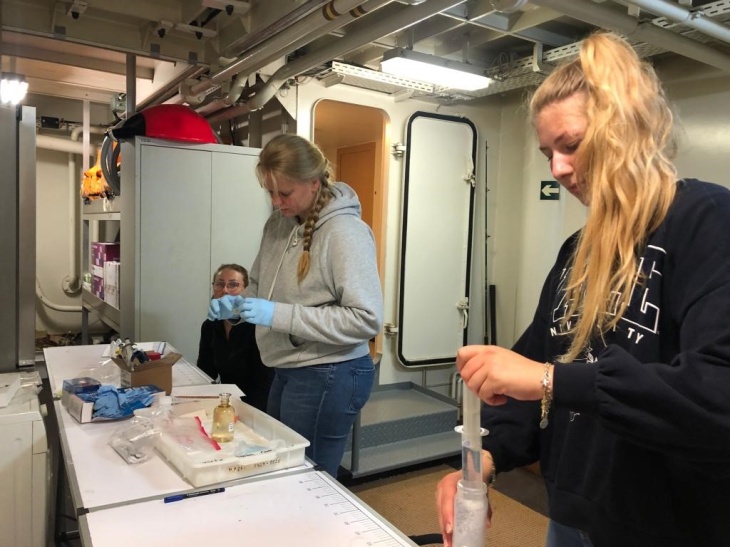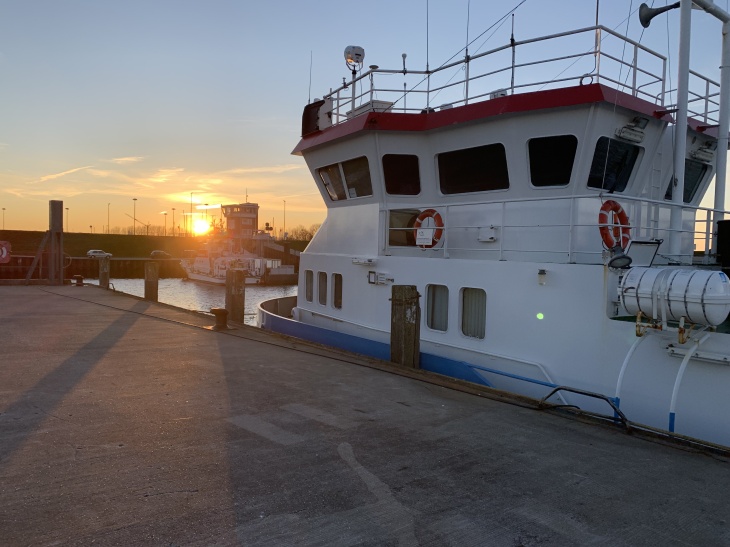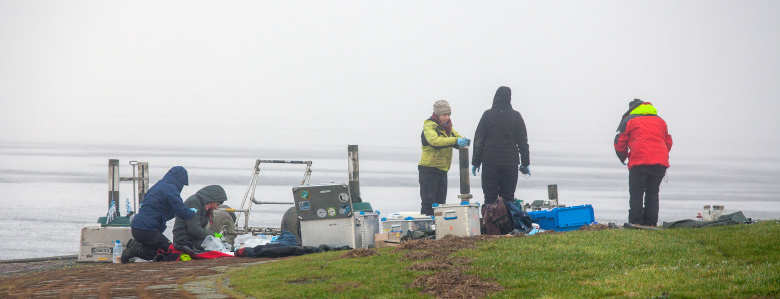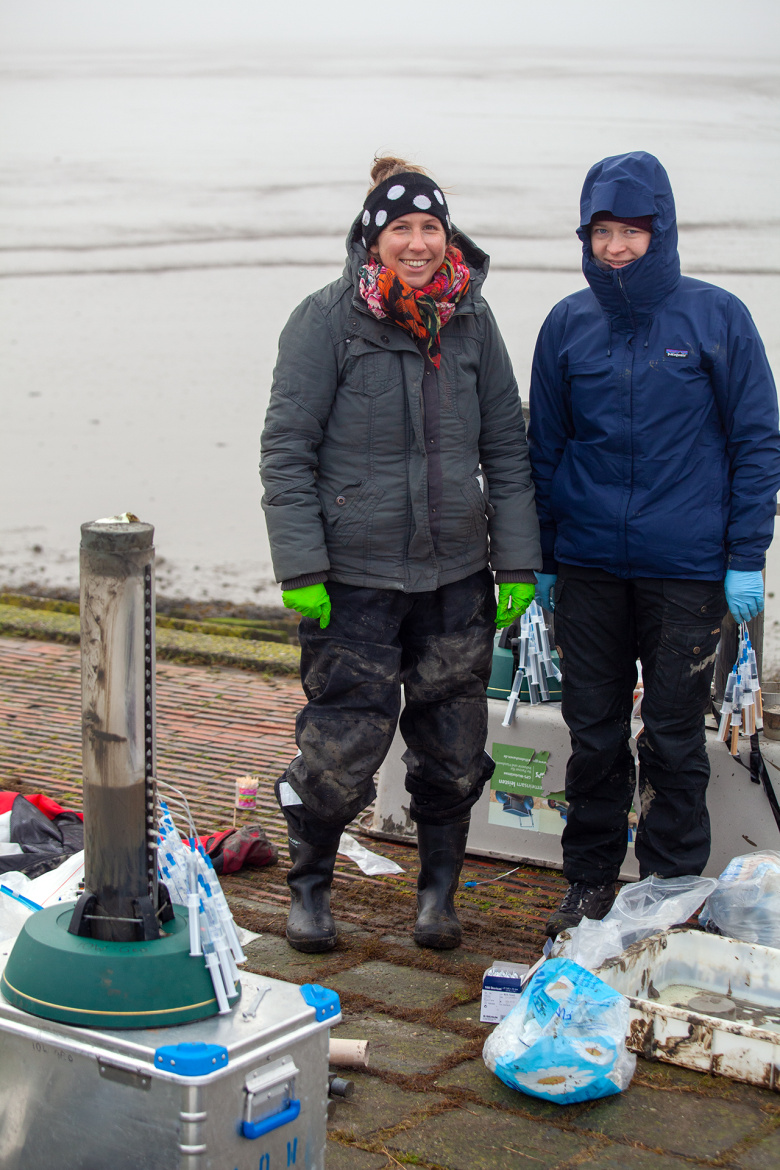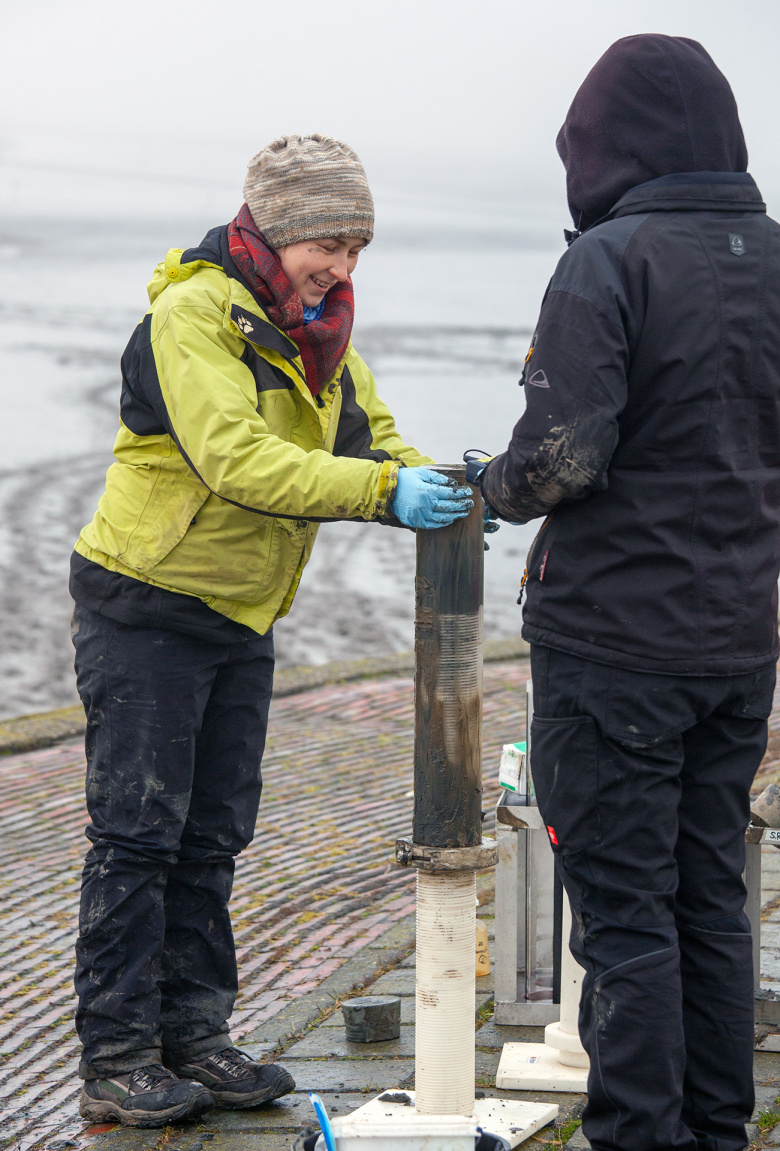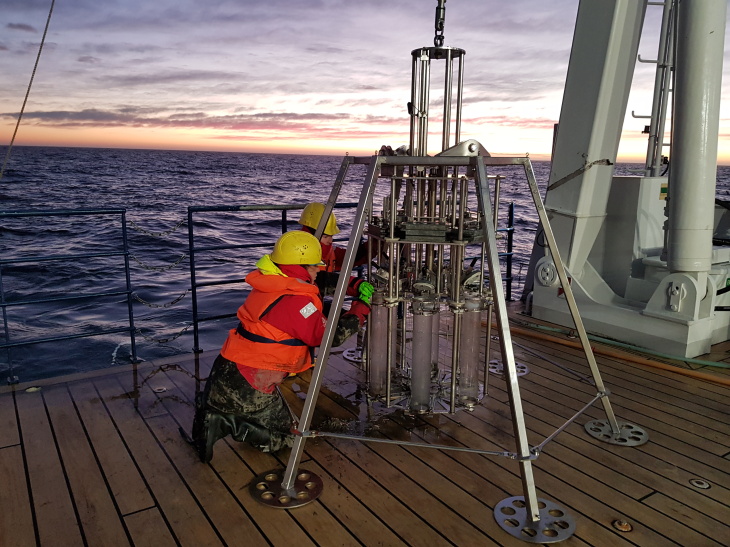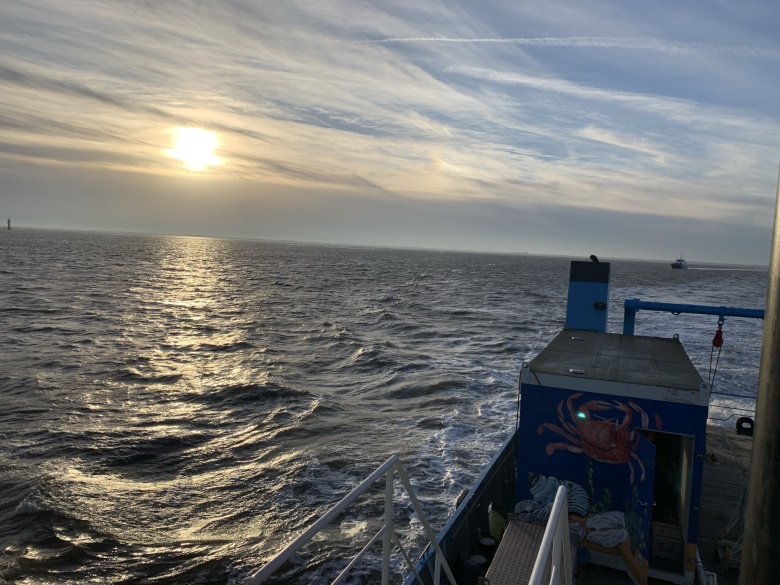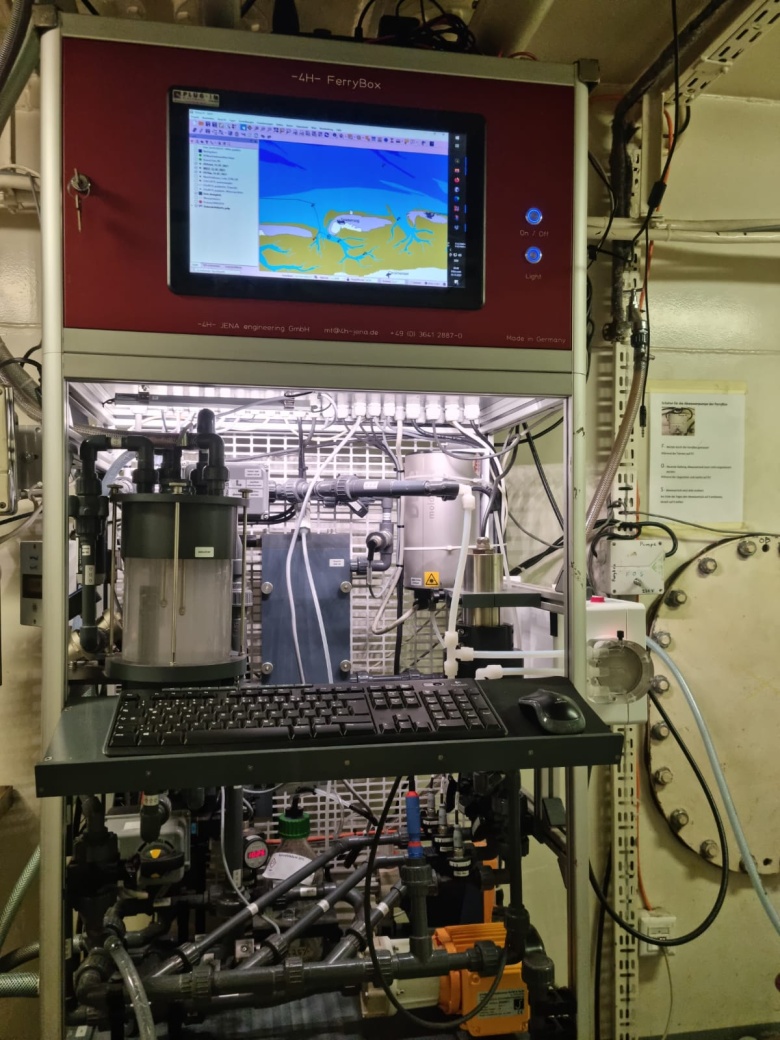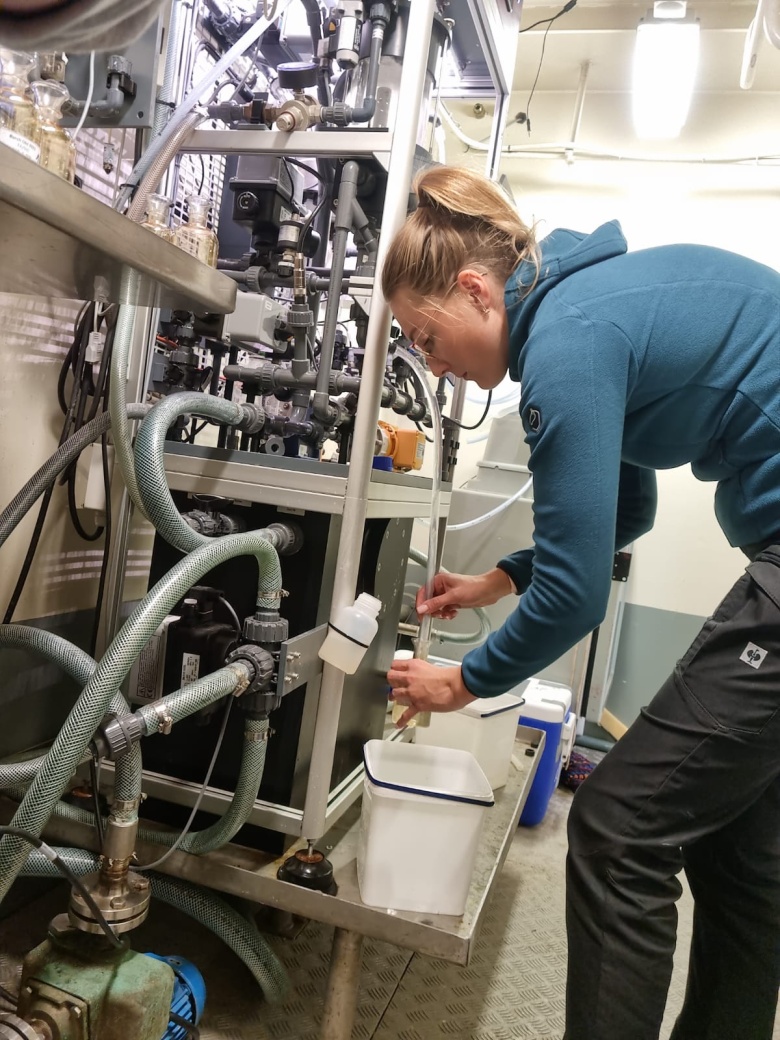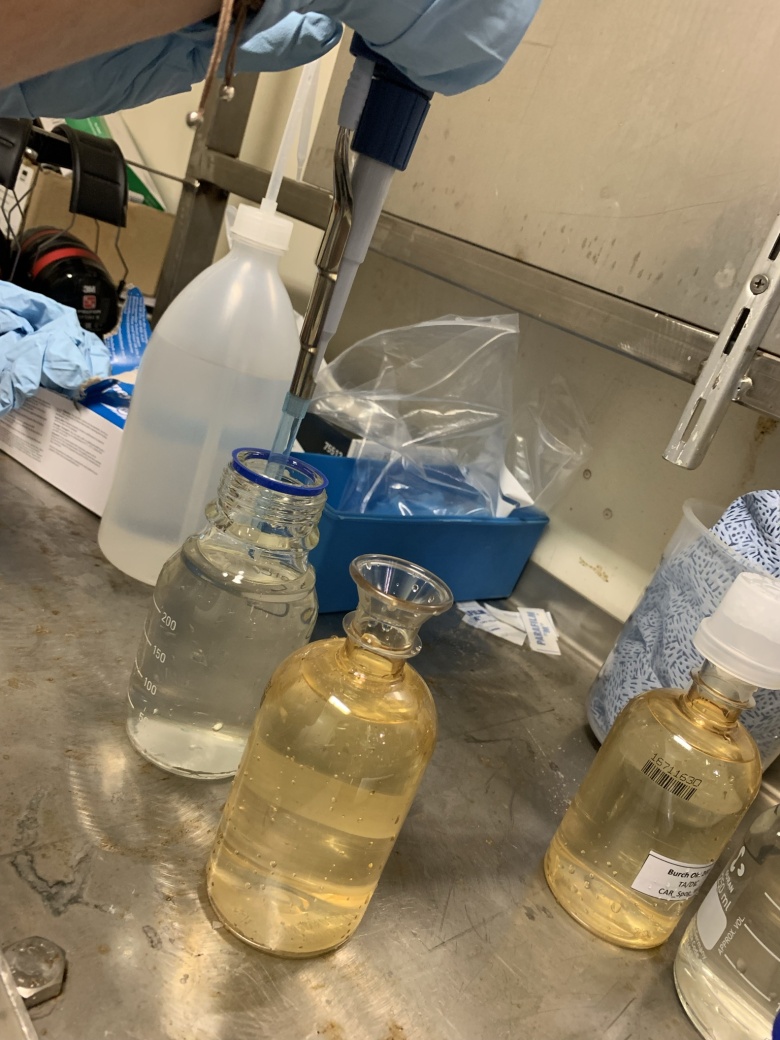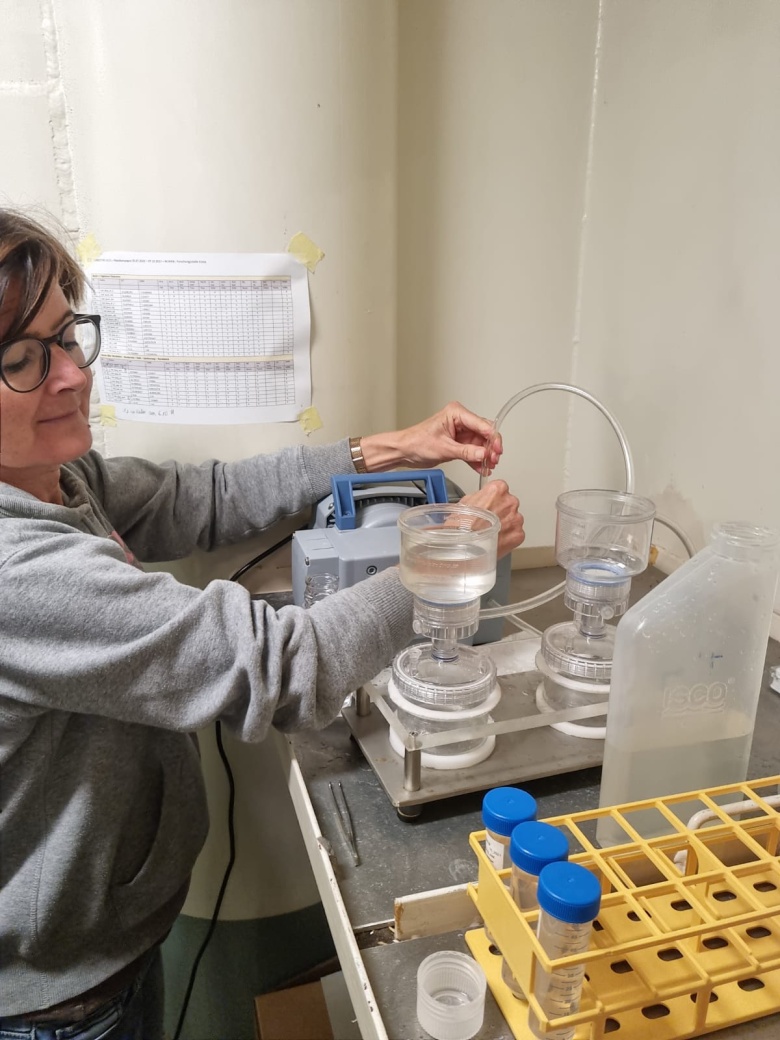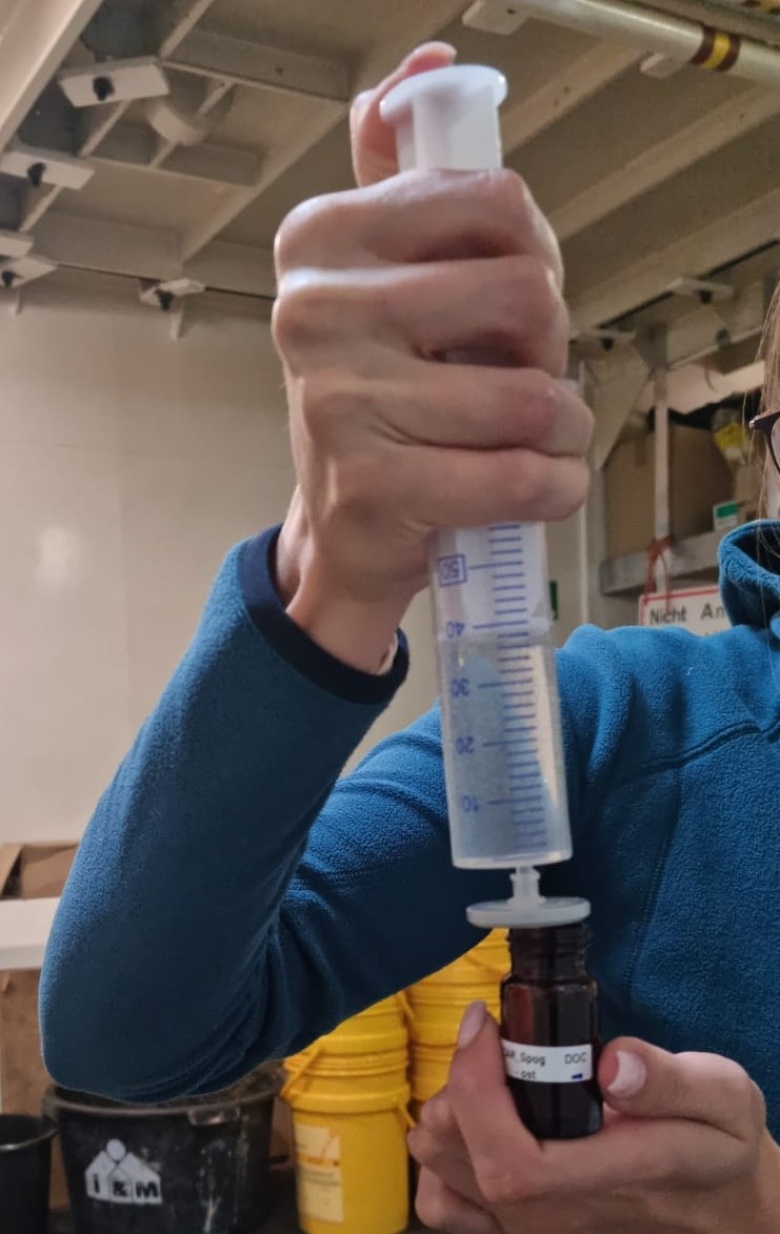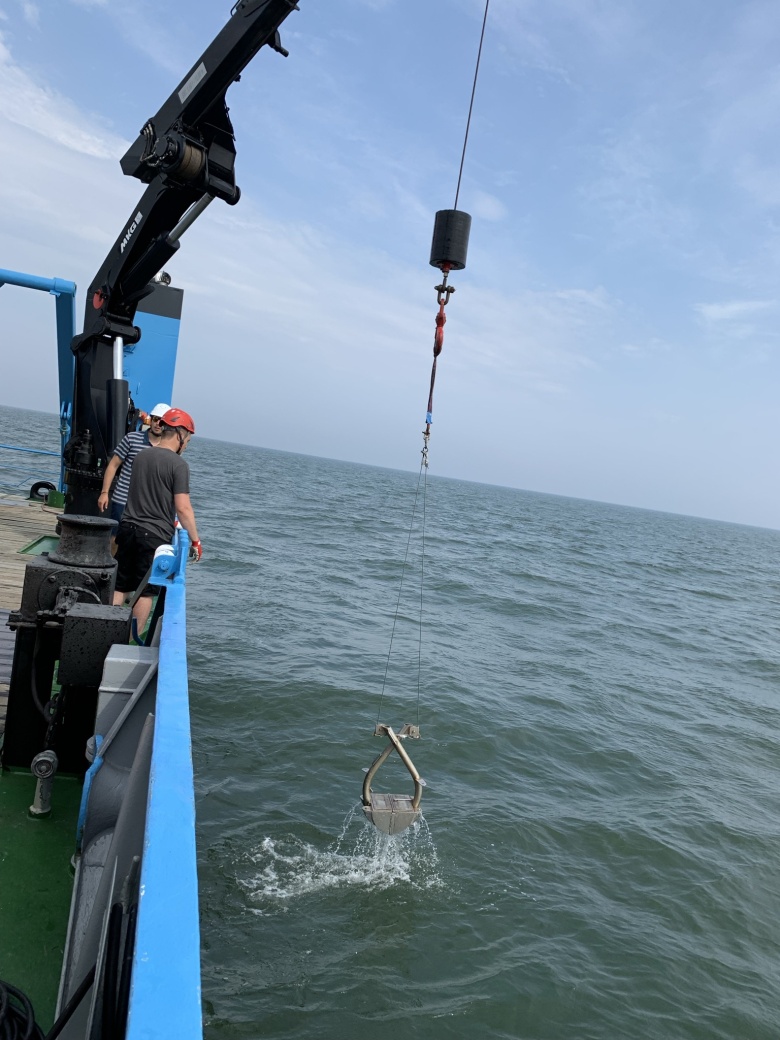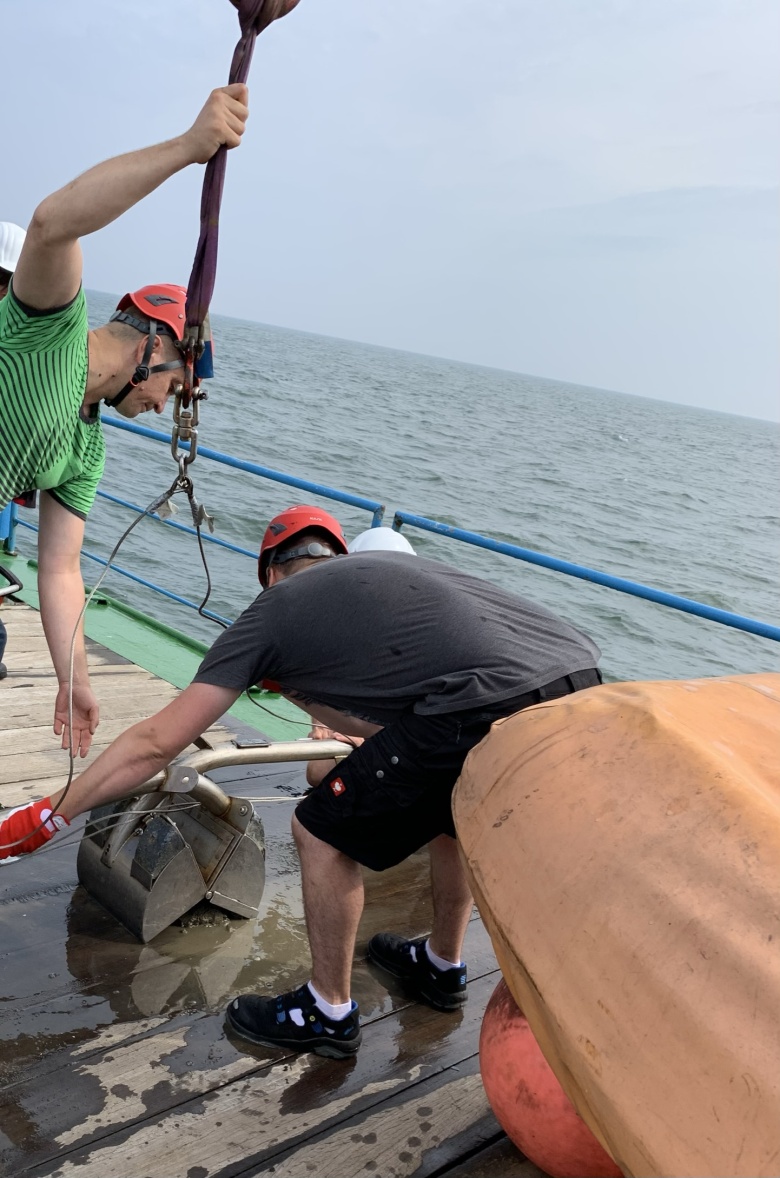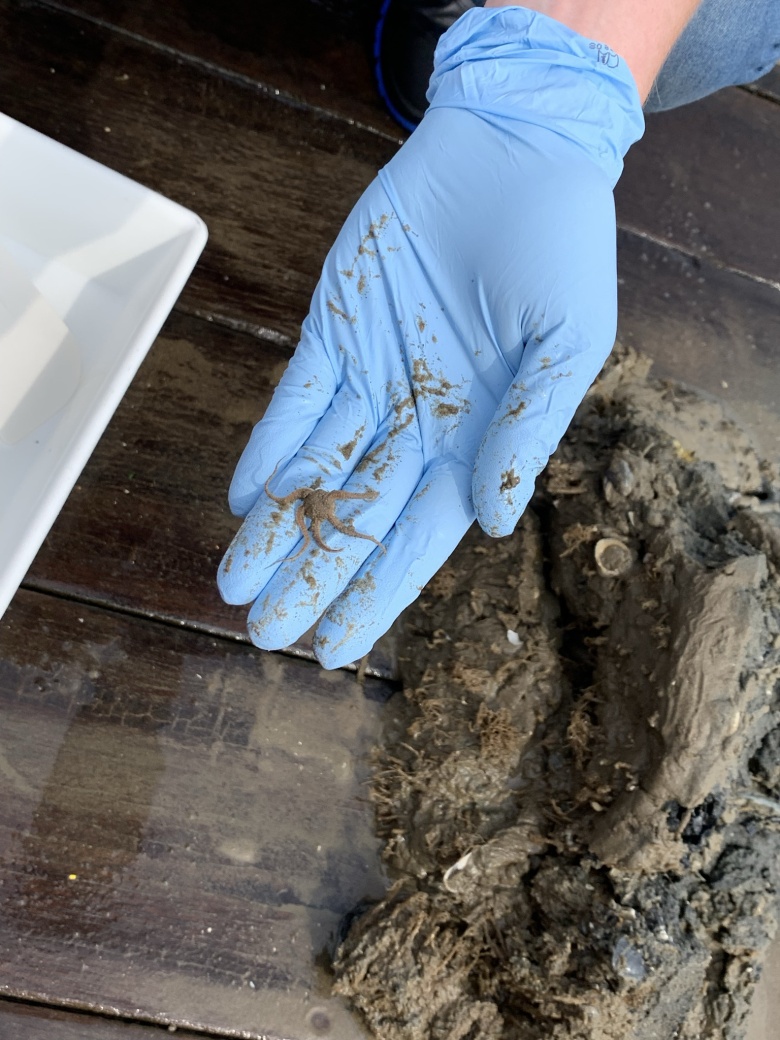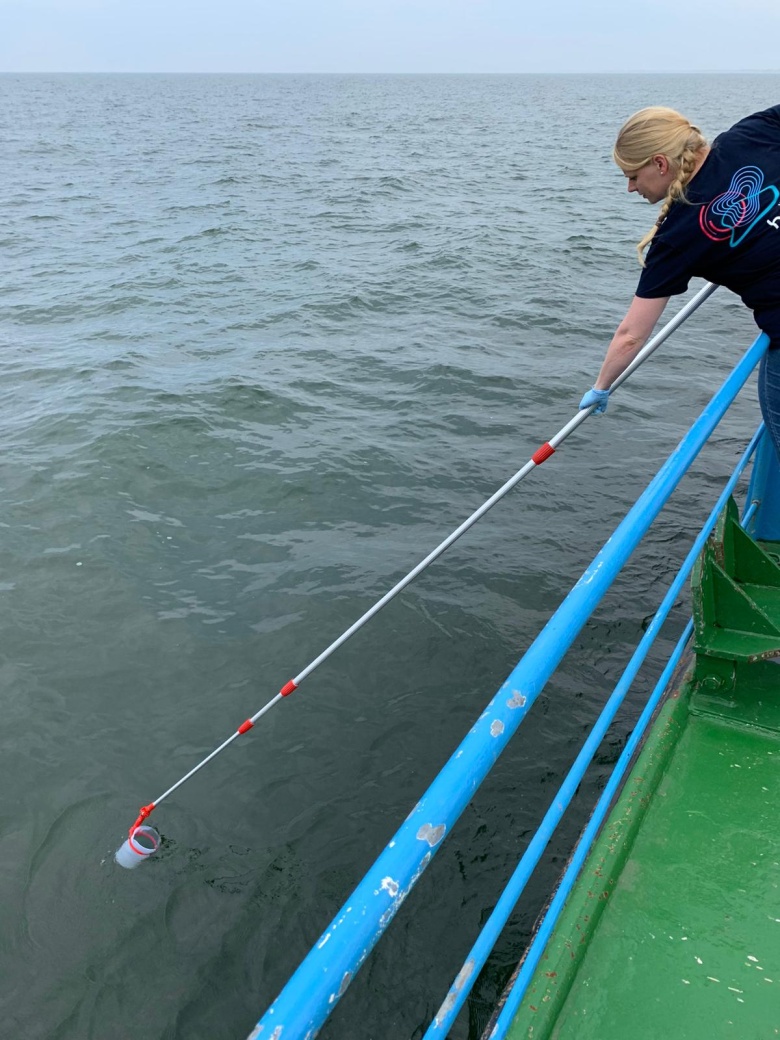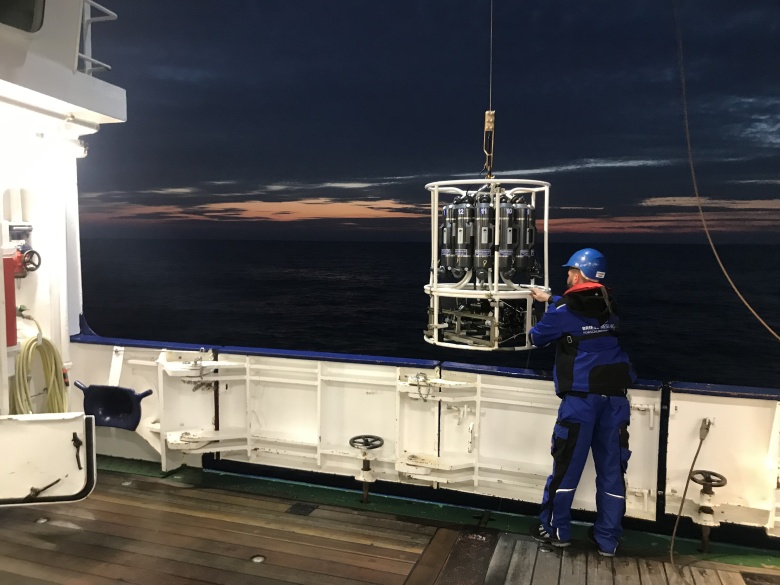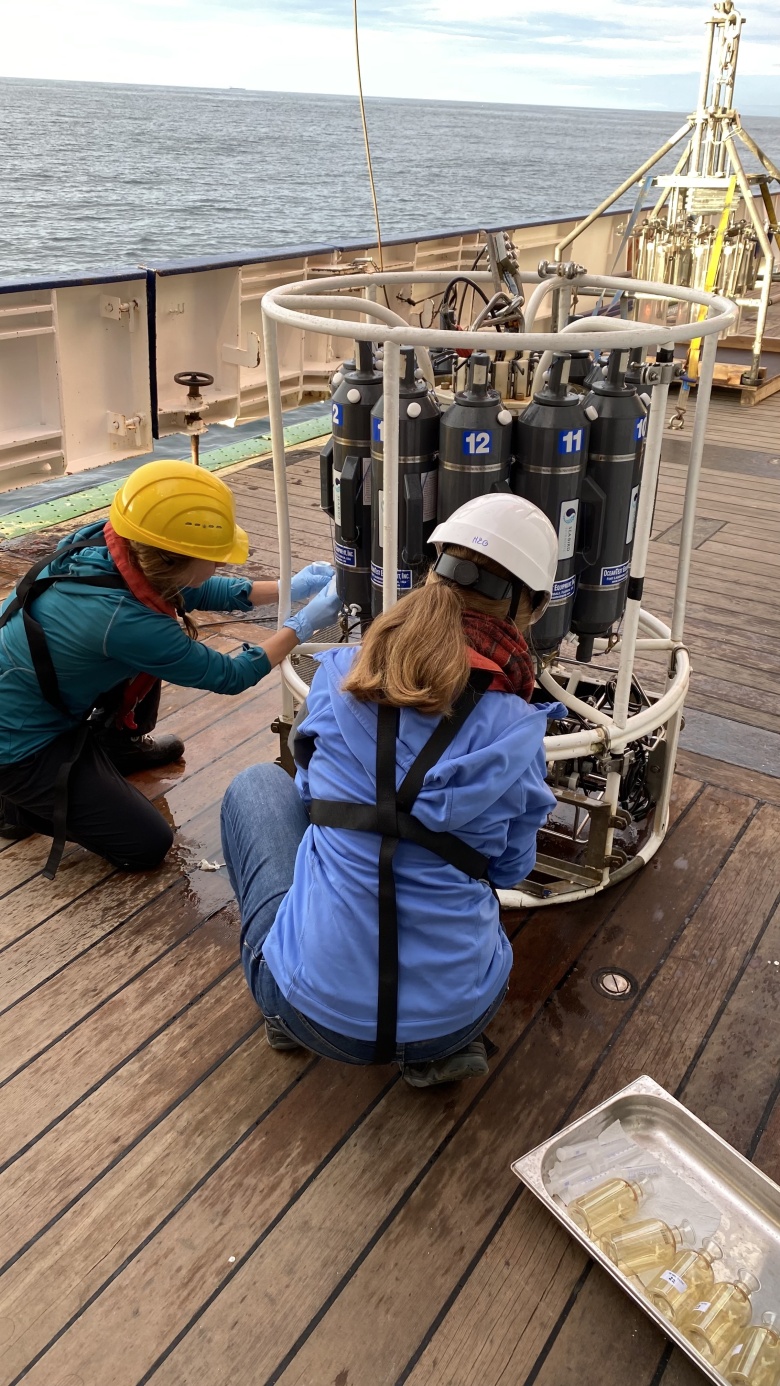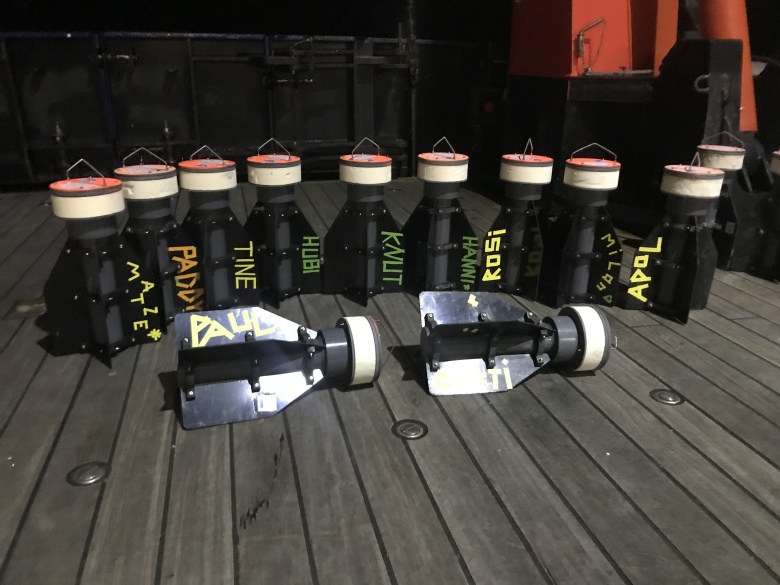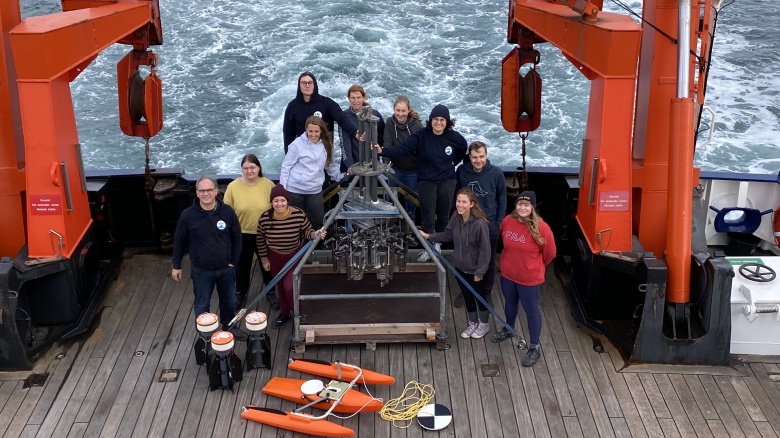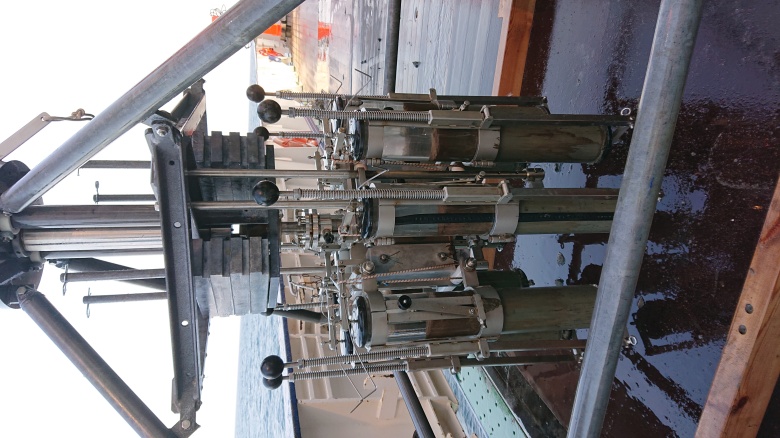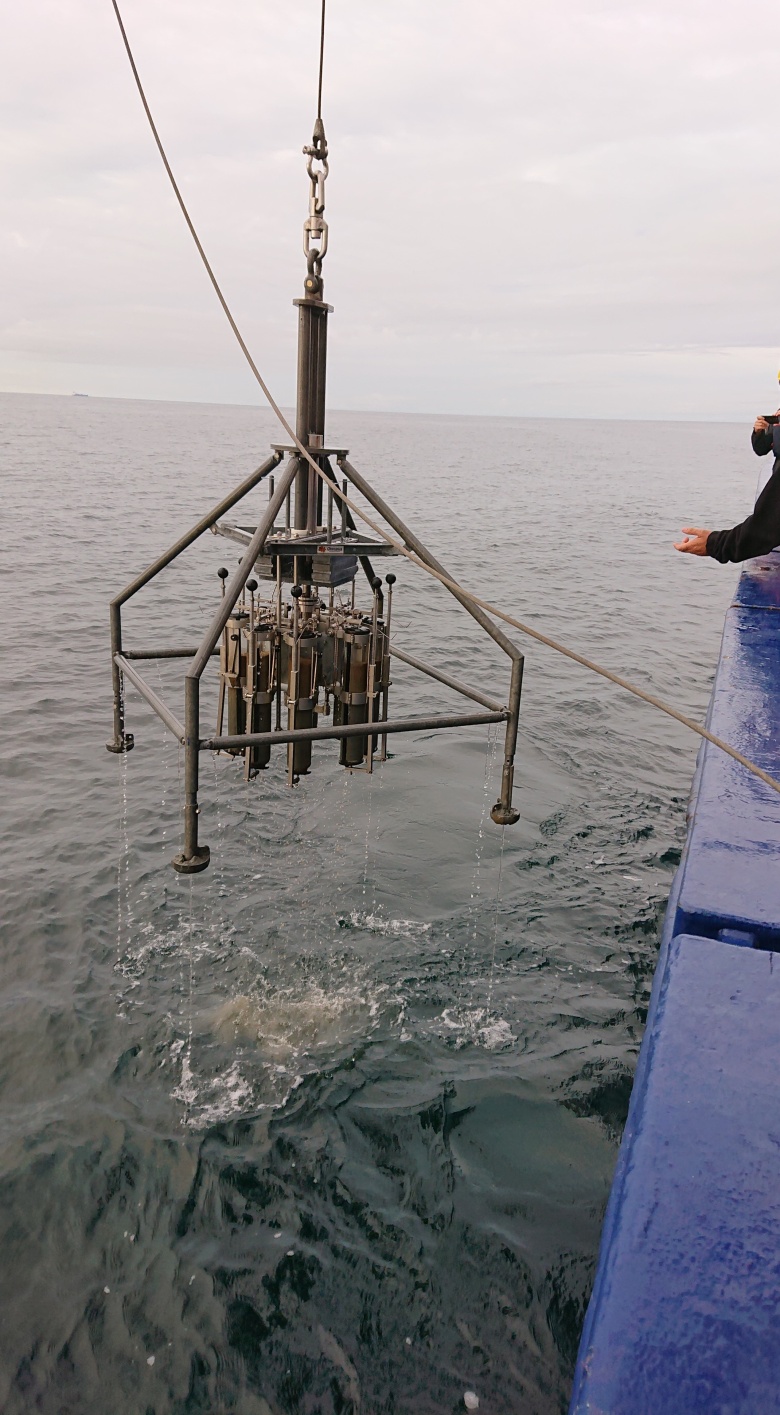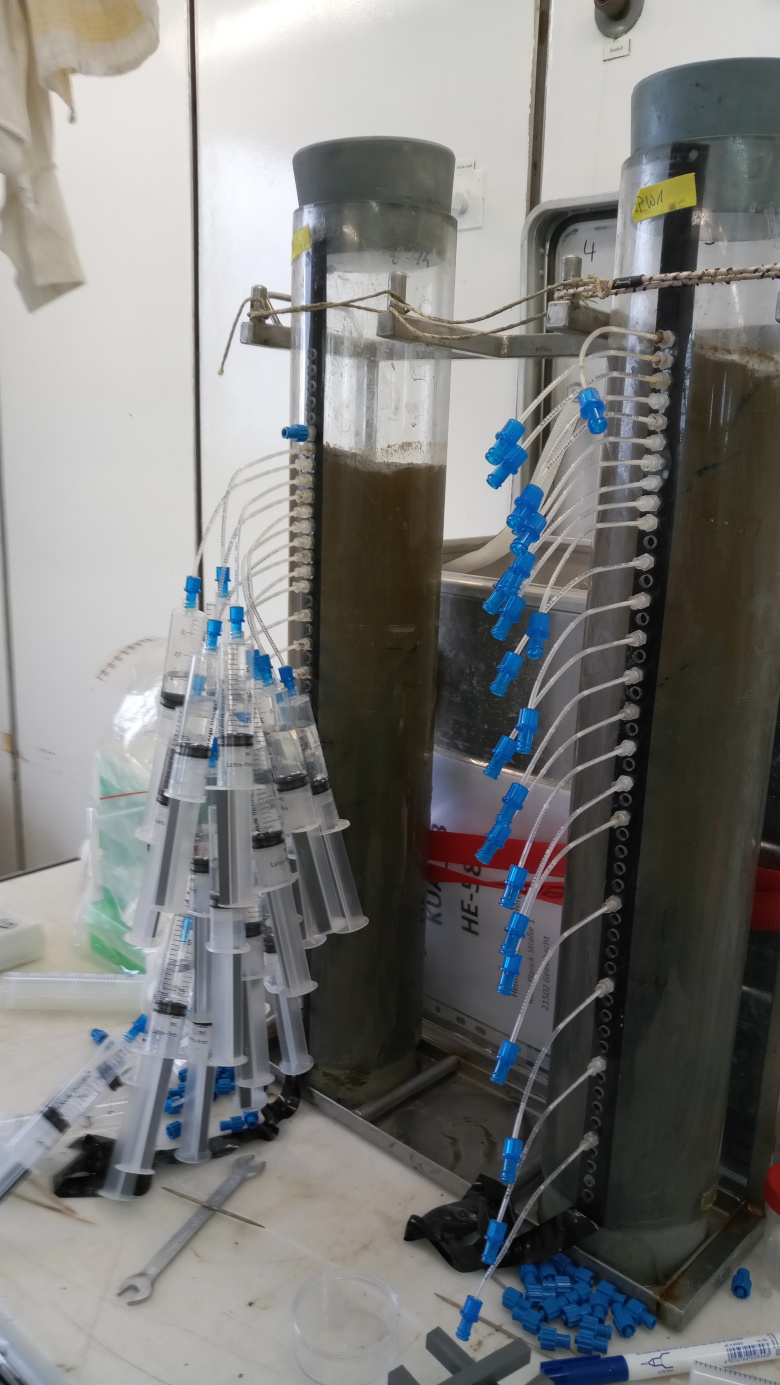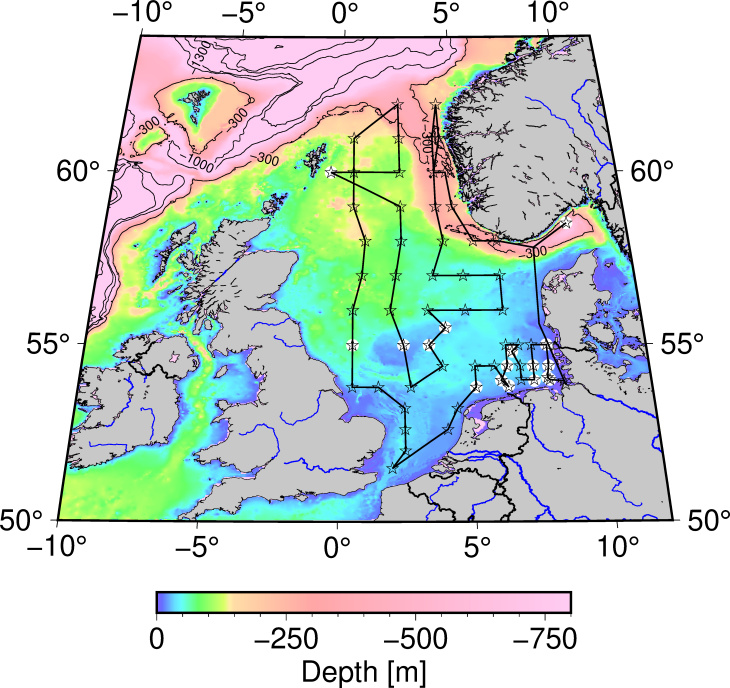March 2024 - CARBOSTORE gets extended
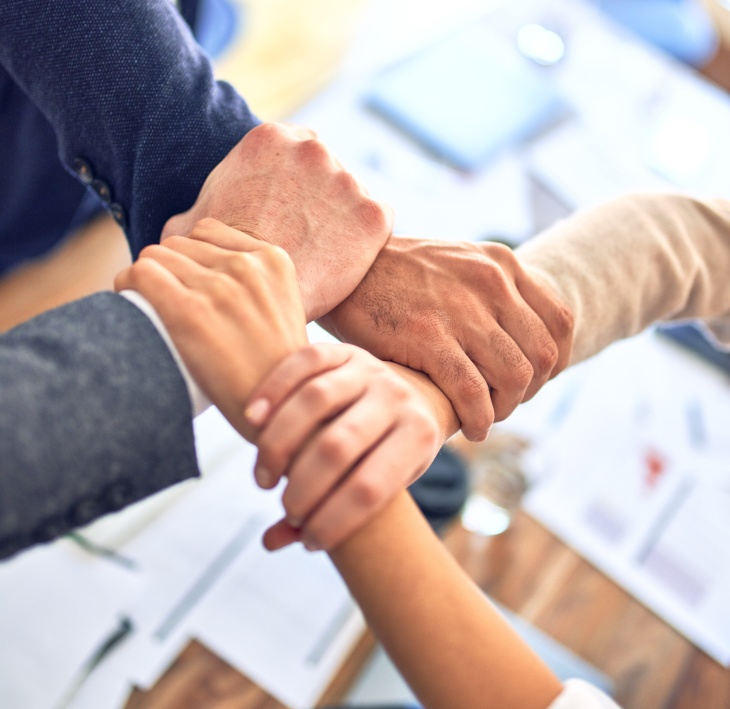
The application to extend CARBOSTORE has been officially approved by the Federal Ministry of Education and Research (BMBF) and the project will now be extended by a few months instead of ending at the end of March 2024. The extension now enables the completion of tasks that have not yet been finalized and the networking of the results of the various work packages. To this end, a final project meeting with all project partners will take place at the end of May.
June 2023 - Annual project meeting
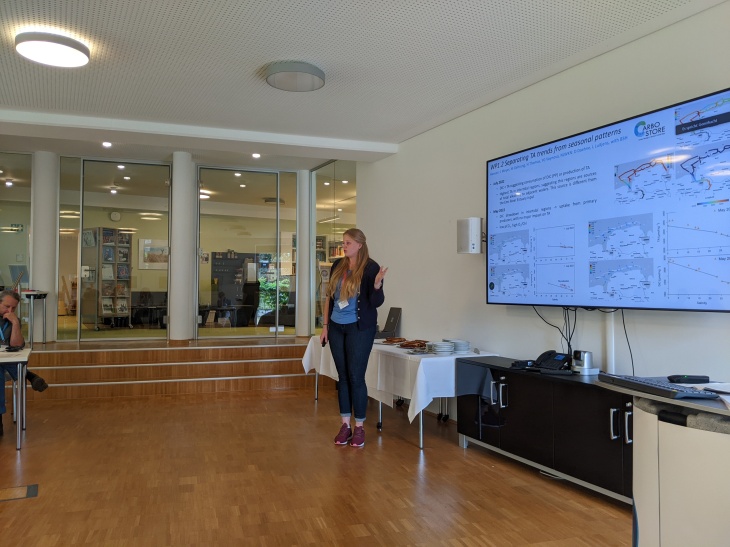
Scientist giving a talk at the annual project meeting (Photo: Bianca Brüssow / Hereon)
On June 19th and 20th 2023, the CARBOSTORE consortium came together for an annual project meeting. The meeting had the aim that the consortium reports about the work that has been done so far. Moreover, it was intended to show any kind of issues and problems that arose as well as to give an overview of the upcoming steps for the final phase of CARBOSTORE. Especially the exchange between the work packages was most important, for instance on the need of data exchange, collaboration on publications and the outcome of the project.
March 2023 - Workshop with stakeholders from authorities and ministries
![Pin boards for exchanging views on topics related to natural marine carbon storage [Photo: Bianca Brüssow / Hereon]. Pinboards](/imperia/md/assets/carbostore/fittosize_730_0_d8112f2cf5d6d837040a713babad141f_stakeholder_ws_05.jpg)
Pin boards for exchanging views on topics related to natural marine carbon storage [Photo: Bianca Brüssow / Hereon].
On March 22, a one-day workshop with representatives of different authorities and ministries took place at the University of Hamburg as part of the work in work package 4. In addition to scientists from the CARBOSTORE consortium, stakeholders from the Federal Environment Agency (UBA) and the Lower Saxony Wadden Sea National Park Administration participated.
The aim of the workshop was, among other things, the exchange on the topic of natural marine carbon storage. All participants are aware of the enormous relevance of the topic. Therefore, the aim of the workshop was also to provide background information on the scientific, social and legal aspects. Another important point was the discussion on the information needs of the public authority staff and to what extent these overlap with the research focus of CARBOSTORE.
On this basis, several written information products (specifically: Climate Focus Papers, i.e. 8-10 page fact sheets that provide information on a topic in a compact and overview-like manner, with many graphics/tables) will now be developed in the further course of the project.
November + December 2022 - Research cruise through North and Baltic Seas
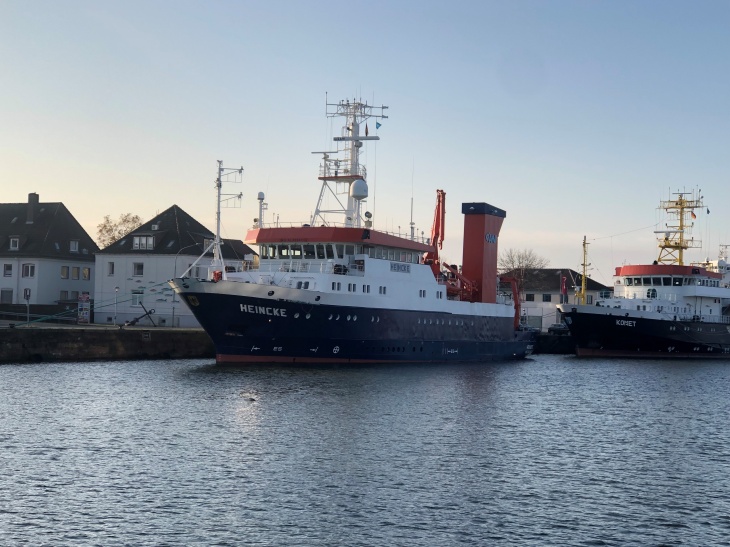
Research vessel Heincke in the harbour of Warnemünde [Photo: Chantal Mears / Hereon].
From 07 November to 02 December 2022, the research cruise with the research vessel Heincke through the North Sea and Baltic Sea took place. The aim of the cruise is to investigate pelagic and benthic processes that control the coastal carbon sink. In addition, the understanding of the carbon cycle is to be improved, especially with the collection of wintertime data. Thus, this research cruise complements the North Sea cruise conducted in June 2021.
For more information on this campaign:
continue
October 2022 Sampling in Dangast und Janssand
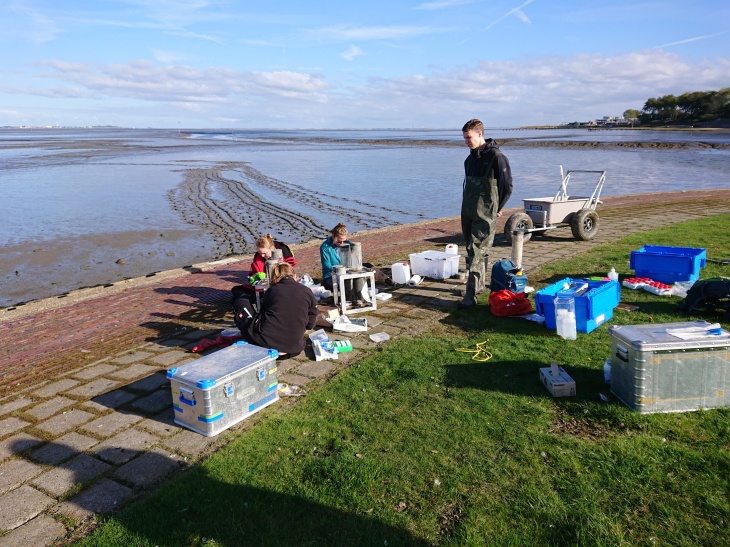
Scientist at work in Dangast [Photo: Andrea Lübben / ICBM].
Sampling in Dangast and Janssand follows the previous sampling in January, April and July 2022, so that the processes can be followed throughout the year. Samples were taken from mudflats and sandflats.
June 2022 - Project meeting
On June 19, 2022, the first project meeting within the CARBOSTORE consortium took place in Hamburg. Previously, meetings could only take place digitally.
The goal of the project meeting was, in addition to the exchange on the current status of the project, an improved cooperation between the individual work packages. Furthermore, the informal exchange and getting to know the participants of the project was highlighted.
May & July 2022 - Campaign with the MS Burchana
In May as well as in July 2022, the Coastal Research Unit (FSK) of the NLKWN carried out another measurement campaign with the MS Burchana for Carbostore. These are the same sampling points that were planned in March.
For more information on these two campaigns:
continue
March 2022 - Campaign with the MS Burchana
From 07th to 10th and on March 14, 2022, the Coastal Research Center (FSK) of the NLKWN carried out a new measurement campaign with the MS Burchana for Carbostore. Additional points were added to the tour, so that the campaign days were two days longer than the previous ones in 2021. The new points include part of the Ems to Weener, the East Frisian Gatje, the Dukegat, the Randzelgat and the Westerems, as well as point’s seaward from Borkum.
For more information on this campaign:
continue
January 2022 - Sampling of mudflat sediments
Further sampling for CARBOSTORE took place in mudflat sediments in the Jade Bay near Dangast with researchers from Hereon, IOW and ICBM. Here, the analysis of sediments and pore waters will extend the understanding of benthic C-transformation processes and fluxes across the sediment-water interface.
December 2021 - Sampling campaign with the RV Skagerrak
Further sampling for CARBOSTORE took place in the Skagerrak, a strait between Denmark, Norway and Sweden. For this sampling campaign the scientist went with the research vessel Skagerrak.
For further information on this campaign:
continue
CARBOSTORE campaigns with the MS Burchana
![<strong>Data collection July and October 2021</strong>: Recorded FerryBox data and sampling points during the measurement campaigns in July and October 2021. [Map: NLWKN/Lara Luitjens] Map with recorded FerryBox data and sampling points during the measurement campaigns in July and October 2021](/imperia/md/assets/carbostore/fittosize_730_0_05dcb4de854a8833fedcddcf6f758f0e__eng_nlwkn-fsk_carbostore_kampagnen_2021_burchana_-_ferryboxdaten_gesamt.png)
Data collection July and October 2021: Recorded FerryBox data and sampling points during the measurement campaigns in July and October 2021. [Map: NLWKN/Lara Luitjens]
From 12th to 15th July and 5th to 7th October 2021 for the CARBOSTORE project the first two campaigns took place with the MS Burchana, the research ship of the Lower Saxony State Agency for Water Management, Coastal and Nature Conservation (NLWKN).
Using an autonomous laboratory system (FerryBox) on board the MS Burchana, water quality parameters (temperature, salinity, suspended matter concentration, pH value, dissolved oxygen, chlorophyll, algae classes and carbon dioxide partial pressure) are continuously recorded during the cruises with precise time and position. In addition, for work packages 1 and 2, samples for nutrients, DIC/TA, DOC/DIC/H2O-isotopes, NO3-isotopes, TN/TP, DON/DOP, DOM and, among other things, for the analysis of metals in the July, sediment samples taken with the grab and scoop samples from the deck. Radon was also sampled in October.
Julia Meyer (PhD student Hereon), Dagmar Daehne (Research Associate NLKWN) and Lara Luitjens (Technical Engineer NLWKN) accompanied these cruises.
Four more measurement campaigns are planned for 2022. The first of the year is expected to take place in March.
(DIC = Dissolved Inorganic Carbon, TA = Total Alkalinity, DOC = Dissolved Organic Carbon, H2O = Water, NO3 = Nitrate, TN = Total Nitrogen, TP = Total Phosphorus, DON = Dissolved Organic Nitrogen, DOP = Dissolved Organic Phosphorus, DOM = Dissolved Organic Matter)
October 2021 - Research cruise Heincke HE586
From October 4th to 11th four CARBOSTORE members joined the Heincke 586 cruise along the Danish coast to the Skagerrak. The cruise was part of a student project of the University of Oldenburg / ICBM. For the participants from CARBOSTORE, the highlight of the cruise were three multicorer (MUC) stations in the Skagerrak where sediments, pore water and water samples were collected. These samples will be investigated for metals, nutrients, different isotopic signatures, alkalinity and dissolved carbon compounds. During the whole cruise, a FerryBox measured surface water parameters like pCO2, pH, chlorophyll fluorescence, CDOM, conductivity, temperature, turbidity and oxygen saturation. To map the different currents and mixing processes within the Skagerrak and the exchange between Baltic Sea and North Sea, 17 drifters were deployed along a transect from close to Torungen (Norway) to Hirtshals (Denmark). Further, almost 100 CTD profiles were measured along the transect through the Skagerrak, along the Danish and German coast and within the nature conservation areas “Sylter Außenriff” and “Borkum Riffgrund”.
September 2021 - Sampling campaign
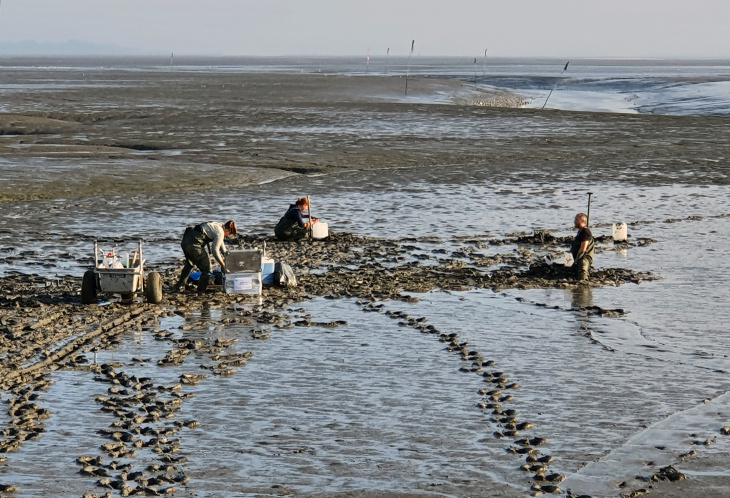
Sampling at a tidal basin at the North Sea (Photo: IOW / Michael Böttcher).
During the campaign, samples of surface sediments and pore water were taken from a mud flume. The subsequent analysis of the dissolved substances is used to estimate the formation of dissolved inorganic carbon (DIC) and the total alkalinity (TA) in the sediment. Furthermore, the resulting benthic-pelagic material fluxes and their microbial influence will be investigated.
August 2021 - Field campaign
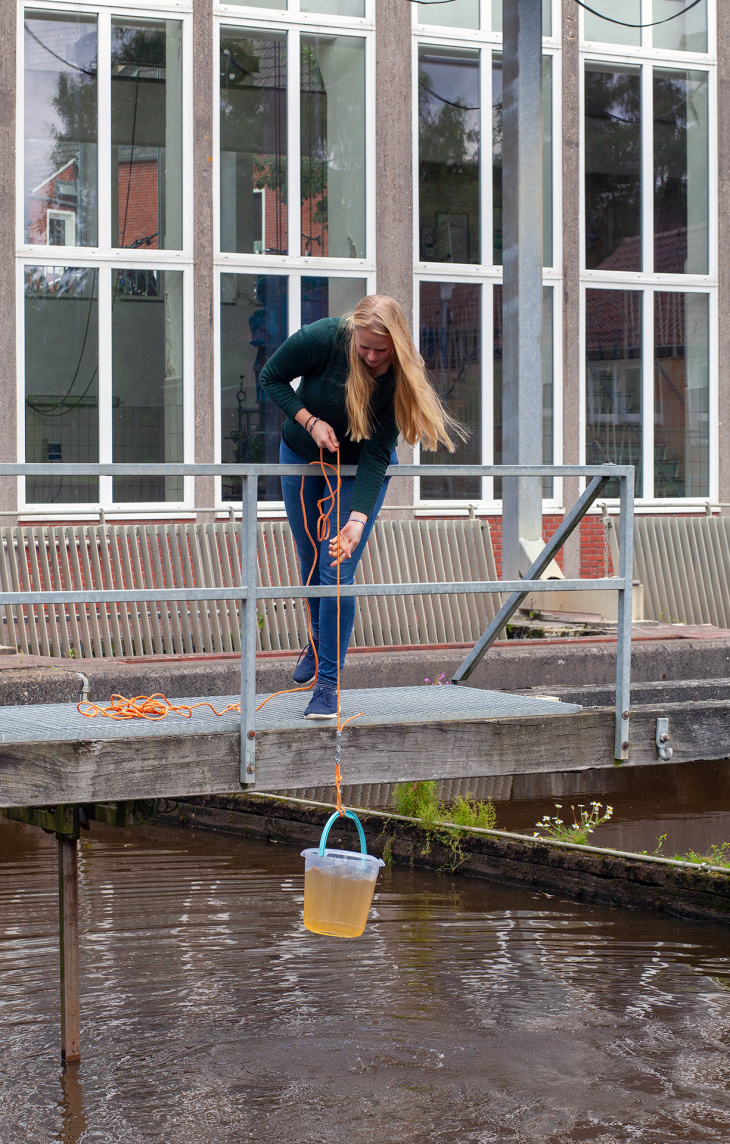
Sampling at the freshwater inflows into the southern North Sea (Photo: IOW / Michael Böttcher).
As part of the work for work package 1, samples were taken from the freshwater inflows into the southern North Sea. Particularly, sampling stations were at Dangast (Jade Bay), Neuharlingersiel (Sieltief), Herbrum (Ems), Farge/Bremen (Weser) and Geesthacht/Tesperhude (Elbe).
At these stations, samples for measuring dissolved organic material (DOM), dissolved organic carbon (DIC), total alkalinity (TA) as well as nutrients were taken.
For more information see:
Work package 1
July 2021 - Kick-Off Meeting
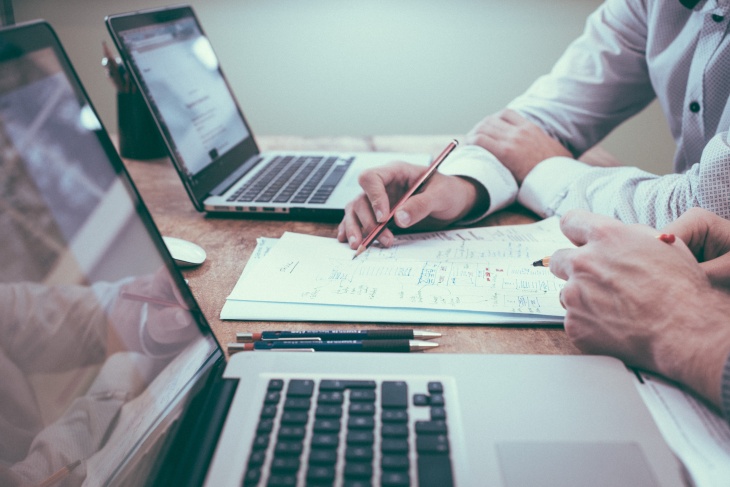
Kick-Off-Meeting (Photo: Scott Graham/unsplash.com)
The kick-off meeting took place July, 13th 2021 where all work packages were presented and the collaboration with parallel projects as well as further sampling campaigns were discussed.
June 2021 - Research cruise with R.V. Alkor
Samples were taken at stations throughout the North Sea to measure organic compounds, carbon, and nutrients. For this purpose, a CTD was used for the water column and a multicorer for sediment sampling. The methodology can be used to determine the sources and sinks of organic compounds, carbon and nutrients.
For further information on this research cruise:
continue

